- Home
- Enquiries
- Fast Facts
- About Us
- Welcome From Wayne
- Our Discoveries on Kokoda
- About Kokoda Spirit
- Why Trek With Kokoda Spirit
- Kokoda Spirit Staff, Guides, Porters and Carriers
- Our Australian & PNG Team
- Our Australian Guides
- Our PNG Guides
- Our Porters
- Our Partners In Adventure
- Our Booking Terms & Conditions
- Inclusions and Exclusions LOCAL LED 2024
- Inclusions and Exclusions AUS LED 2024
- Trek Dates & Prices
- Our Treks
- Why Choose An Australian Led Kokoda Trail Trek?
- Why Choose A PNG Led Trek ?
- Is There An Easier Direction To Trek Kokoda?
- Kokoda Treks
- Fast Treks
- Kokoda Back To Back
- Kokoda Coast To Coast
- Kokoda Ultra Marathon
- Sandakan Memorial Track
- Sandakan Memorial Trek I Mt Kinabalu Climb
- Everest Base Camp Ultimate Adventure Trek (Includes Helicopter Flights)
- Everest Base Camp Ultimate Trek
- ANZAC Day Hellfire Pass
- Port Moresby – Kokoda and Northern Beaches Tour. Non trekking tour
- Port Moresby Island Getaway
- Beach Heads Tour Buna to Gona 2 Nights / 3 Days
- 3 Night / 4 Day Beach Heads Tour Buna To Gona
- Corporate, Executives & Athletes
- Charity Fundraising Adventure Treks
- School and Youth Leadership Programs
- Testimonials
- Gallery
- Trek Info
Thoughts on the Track
Lt Colonel Ralph Honner, CO 39th Battalion
“Whereas Gallipoli may have been the birth of a nation amongst the blunders of Gallipoli, the Kokoda campaign was the overcoming of blunders in another campaign where Australia was doing its growing up. For the soldiers, it was just another lone example in a long series of blunders in sending troops into battles they shouldn’t have been sent into, under-trained, under-equipped, and under-manned against odds they shouldn’t be asked to cope with. It’s a triumph I think of the Australian soldier over extreme adversity which should never have been asked of him.”
Dudley McCarthy, Australian Official Historian
“… it is the story of small groups of men, infinitesimally small against the mountains in which they fought, who killed one another in stealthy and isolated encounters beside the tracks which were life to all of them; of warfare in which men first conquered the country and then allied themselves with it and then killed or died in the midst of a great loneliness.”
Pte Kevin ‘Spud’ Whelan 39th Battalion
“It was terrifying in hindsight. How we got through it, I’ll never know. It was just guts and determination. I often hear people, especially sporting commentators, saying ‘So-and-so broke through the pain barrier. Every one of us broke through the pain barrier, climbing up those bloody mountains. Take one step, slip down two. That’s where we broke the pain barrier.”
Capt Toshiya Akizawa, Platoon Commander Japanese 144 th Rgmt
“You need a special kind of courage. When you draw your sword and point it forward, this is a display of your own courage as well as a signal to the men. it doesn’t just mean, right now we’re going to attack, in that sense it is a signal but also its deeply linked to your personality and courage. It’s like in music when the conductor raises the baton to the orchestra. It’s the same as music; however, instead of raising the baton, you draw your sword and say ‘charge!’ You give the order. Obviously, you’re not trying to cut the opponent. It’s in order to get everybody up and into the attack.”
Japanese soldier, quoted in Touched with Fire by Eric Bergerud
“We make our way through a jungle where there are no roads. The jungle is beyond description. Thirsty for water, stomach empty. The pack on the back is heavy. My arm is numb like a stick. My neck and back hurt when I wipe them with a cloth. No matter how much I wipe, the sweat still pours out and falls down like crystals. Even when all the water in your body has evaporated, the sun of the southern country has no mercy on you. The soldiers grit their teeth and continue advancing, quiet as mummies. No one says anything unnecessary. They do not even think but keep on advancing toward – the front.”
Sgt Colin Blume, 2/14 th Battalion
“I’m not ashamed to say I prayed several times. Mine was: if I get through this I’ll try to live a better life, that’s all. Everybody should have faith of some sort. If you haven’t got faith, where will you go? You got to have faith in something, or yourself, or what object you’re aiming for – there’s got to be faith. You’ve faith in what your mate’s going to do. He won’t let you down and you’re not going to let him down. Many suffered a lot for their mates. I think some blokes who went well beyond their job were the medical orderlies. They took a lot of risks and it was mateship, no doubt about it. They could have got knocked themselves but they went out and did something for those fellows that were in trouble.”
Lt Colonel Phil Rhoden, CO 2/14th Battalion
“I learned that the ordinary bloke is probably far better than some of the people that are so-called leaders. Surely the fellow that carried the burden in the heat of the battle – the fellow with the gun, the fellow with the rifle, in the front line – is far more important than the generals’ way back.
